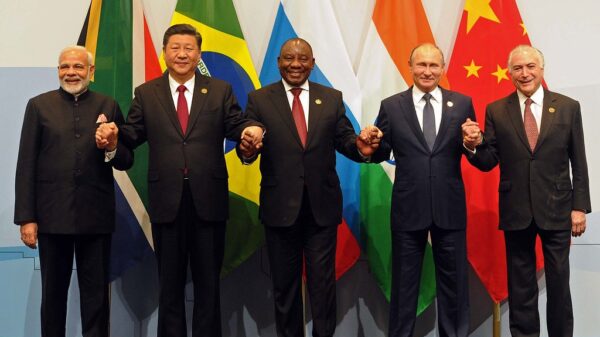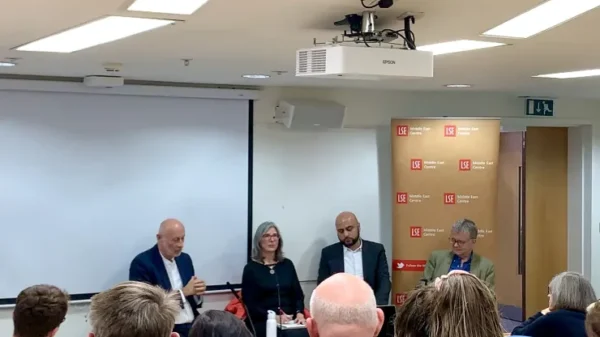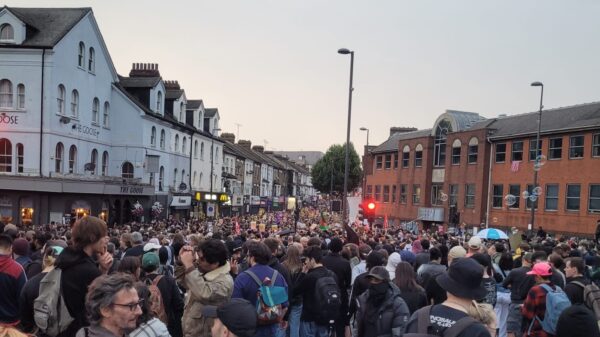News Editor Ansel Bayly reviews the Labour Government’s first 100 days in office, arguing that the root causes of Labour’s challenging start can be traced back to electoral strategy.
“Keir Starmer’s election message is ‘everything in the country is broken, let’s do nothing about it.’” – Daniel Finkelstein, April 2024
On 12 October, the Labour Government passed 100 days in office. Safe to say it’s been a bumpy ride. Even the most enthusiastic Starmerites would be hard-pressed to put a positive spin on a challenging start to the promised “decade of renewal.”
The government stumbled out of the blocks with the announcement that pensioner winter fuel allowance would now be means tested – red meat to fiscal hawks (apparently in the form of hypothermic pensioners), following generous public sector pay deals for train drivers and junior doctors. It backfired spectacularly, outraging the left as well as (a tad surprisingly) the Conservatives: their bleeding hearts, like the scarecrow of Oz, newly found.
Meanwhile a steady drip of expenses stories – ostensibly dubbed ‘freebie-gate’ – Taylor Swift tickets, glasses frames, luxury suits and Arsenal box seats – gradually eroded Starmer’s meticulously curated reputation for propriety. This against the backdrop of increasingly vituperative briefings against Starmer’s Chief of Staff, Sue Gray. In an attempt to reduce spending, Gray held down the wages of ministerial special advisors. The “SPADs”, a famously tight-lipped bunch, were incensed. Meanwhile, Gray was being paid more than the Prime Minister, £170,000 per year to Starmer’s £166,786. Her salary was subsequently leaked to the BBC’s Political Editor. Her ominous absence from a bewilderingly dreary party conference foreshadowed her exit.
BBC Exclusive from me and @hzeffman: Row in government as PM's Chief of Staff is paid more than him: https://t.co/4RyMi4pHz7
— Chris Mason (@ChrisMasonBBC) September 18, 2024
The resignation of Sue Gray is an admission from Downing Street that the government has stalled on the hill start that is government. This is not to say there have not been successes. Starmer’s past employment as Director of Public Prosecutions set him up perfectly to deal with the summer wave of “far-right thuggery” that hit the UK just weeks after the election. This was perhaps also the point where the prime minister’s approval ratings soared, before sharply dropping as the autumn rolled in.
Early reversals of the Rwanda plan and the de facto ban on onshore wind set the tone for a reasonable programme of policies. Most recently, the draft Employment Rights Bill has appeased the unions with a strong set of measures – whilst watering down the more radical elements proposed in earlier iterations. Meanwhile, the Refugee Council has estimated that the scrapping of the Rwanda plan will mean 59,000 fewer cases in the asylum backlog by the start of 2025. However, the backlog is still expected to be over 118,000.
The asylum backlog is a synecdoche of the broader challenges of Labour’s government. So far, the government has enacted a reasonable programme of policies that will make a positive impact. The issue is that the policies don’t seem to match up to the scale of the challenges Britain is facing. There will be more to come, but details of the more sweeping changes needed, to revive creaking public services and a stagnant economy, are relatively thin on the ground.
We can debate how fair it is to expect more fleshed-out policy proposals this soon after winning power. But whatever the reality, the perception is that the government, at present, lacks direction and momentum. The diagnosis – that Britain is broken – is fair, say the commentariat, but they don’t seem to have a cure.
This is the nub of the issue. Regardless of the meat of policy announcements, there isn’t a clearly articulated vision for how to get out of the mess we find ourselves in – no core thesis or coherent ideology. Even if we accept that, in principle, a technocratic, non-ideological approach may yield results, in practice, an overarching narrative is needed to explain to the public the difficult decisions that inevitably arise in government.
The roots of this lack of messaging can be found in Labour’s election strategy. A strong poll lead led to a hyper-defensive approach in which Labour avoided any policy announcements likely to alienate a group of voters – which is to say, most policies. Their slogan, Change, embodied the strategy: sufficiently nebulous as to suggest a turning of the page without having to address how change might be achieved.
This was evident in their manifesto. Paul Johnson from the Institute for Fiscal Studies said that, beyond the (much reduced) £5 billion dedicated to the green transition, the document contained “almost nothing in the way of definite promises on spending despite Labour diagnosing deep-seated problems across child poverty, homelessness, higher education funding, adult social care, local government finances, pensions and much more besides.”
The strategy was evidently a successful one. ‘Britain is broken, let’s do nothing about it’ was a contradictory, yet reassuring message to the British people, argued Daniel Finkelstein. A promise of change that elides the costs of such change is obviously appealing; as Martin Wolf observes:
“The British people don’t seem to want politicians who will be honest with them.”
Martin Wolf speaking on the Political Fix podcast
Once in government, however, such contradictions can no longer be obfuscated. When the difficult decisions do come, you need an underlying principle, a narrative to sell to the electorate. And if you don’t have a narrative, the media will make one for you. For the Blair government, the message was modernisation. For Cameron, it was austerity. These narratives are most effective when they complement criticisms of the previous government.
Post-1997, the Tories were painted as backwards, old-fashioned, and unfit to govern in the 21st century. Post-2010, Labour were tarred as fiscally imprudent. The infamous “there is no money” note left by the former Chief Secretary to the Treasury, Liam Byrne, was repeated by successive Conservative governments for 14 years.
Such criticism only works though, if you set out a clear response. The Tories were able to enact far harsher spending cuts than those of the winter fuel payments in 2010, precisely because such cuts fitted into a broader strategy, one that was set out during the campaign and received a mandate from the British people.
Starmer’s criticisms of the Truss-Sunak legacy, however valid, are met with accusations that he is ‘talking Britain down’ because the criticisms aren’t grounded in a clear narrative for how Labour will fix it. Conversely, stories around expenses and freebies cut to the bone because one of Labour’s most effective criticisms of the Tories was over sleaze and impropriety.
The Starmerite diagnosis was correct. Good policy without power is meaningless. Labour cannot be the party of protest. But power without a platform, without a mandate for change, is fundamentally limited. The Labour party can, and must, deliver for Britain. Their success will be nonetheless constrained by the electoral strategy that got them there.



















